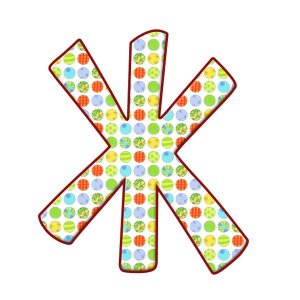What does Russian sounds like to those who don’t know it?
Many of my friends love the fact that I speak Russian to my child and are surprised by the replies to me in Russian and to them in English. At almost 2 already knows the difference between the two languages and sounds different in each of them. Some of my friends are multilingual too and I myself love listening to them speaking their language. As I speak a lot of languages, plenty of times I can actually understand what is going on. Read More
How many words in Russian?

For example a word shape. Is it one word or two, or even three? It can be a verb (meaning to form), can be a noun (meaning figure). In the expression shape of mind (state) it is translated into Russian with a different noun.
The biggest Russian Modern dictionary contains around 200,000 entries. This dictionary does not have jargon, swear or archaic words. It also does not contain a lot of special terms – for that purpose, there are many other specific dictionaries: medical, agricultural, juristic, etc.
According to Oxford Press the Second Edition of the 20-volume Oxford English Dictionary contains full entries for 171,476 words in current use, and 47,156 obsolete words.
But what is more important that on average a well-educated person knows and uses only around 6000 – 8000 words.
How to memorize all those endings?
How to memorize all those endings? Do the Russians really always think which case to apply?
No, of course, the Russians don’t think about cases when talking. It’s embedded in their heads – it’s just their way of thinking. The English don’t think which tense to apply – they will never mix the verbs in the phrases: ‘I’ve read it already’ and ‘I read it yesterday’, which is, by the way, Russians will use the same verb in both phases:
I’ve read it already = Я уже это читал.
I read it yesterday’ = Я читал это вчера.
Repetition is the key here. Listen to the audio regularly and try to repeat after the native speaker. Listening improves your comprehension, but repeating actually makes you think more.
Sometimes you have feeling that you understand everything, but when you try to repeat, you are confused and don’t know all the words and all the endings. So work with audio 30 min every day and eventually you will get it.
Masculine nouns with feminine endings
Is Russian a phonetic language?
Is Russian a phonetic language?
Accent Mark in Russian Textbooks
In Russian textbooks, each word has an accent mark, because the accent affects pronunciation.
You won’t see any stress marks in regular books. But for the learning purpose knowing where the word stress falls is extremely important.
For example, there are 3 letters О in the word ‘молоко’, and only one of them (the last one) is pronounced like in the alphabet. The first two are pronounced like “a” because they are unstressed. Generally speaking, Russians don’t care about unstressed syllables and they pronounce them casually. If you do the same you will get the correct pronunciation without thinking too much.
It is similar to English, particularly American English when you hear: “I gonna do it, I wanna go” … instead “I want to do it, I want to go“.
The difference between ъ and ь
These two letters are silent. They don’t make any sound by themselves.
ъ – hard sign
ь – soft sign
First of all, both of those signs work as separation signs. In order to understand the difference you should listen to the following words, using Google Translate:
сел лёд
съел льёт
In addition to the separation job soft sign does something else – it softens the previous consonant:
мол тонко
моль Тонька

 There are 3 consonants in Russian that always sound hard:
There are 3 consonants in Russian that always sound hard: